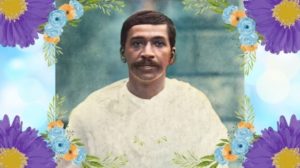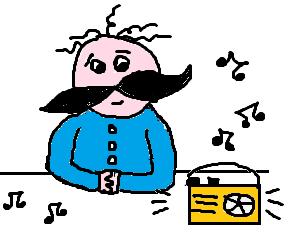The great Rishis (God-realized sages) of India have always enjoyed a very special relationship with animals. The minds of these yogis having expanded and unified with the Universal mind, (which contains all our individual minds within it, like fruits are contained in a bowl) – they could easily read the thoughts, emotions and feelings of not just humans, but also of animals. Because of this ability, the hearts of these Yogis were always overflowing with love, kindness and understanding towards them.
Swami Vivekananda for instance used to lovingly care for many goats, sheep and geese at his Math (ashram) in Belur. Before milking his pet goat Hansi, Swamiji always asked her for permission.
Another baby goat Matru was so attached to Swamiji that it slept in his room. Swami Vivekananda’s spiritually charged presence had affected even the ashram dog Bagha who used to participate in the Math’s pujas and bathe alongside devotees in the Ganges on sacred occasions. (Source: Vivekananda A Biography by Swami Nikhilananda)
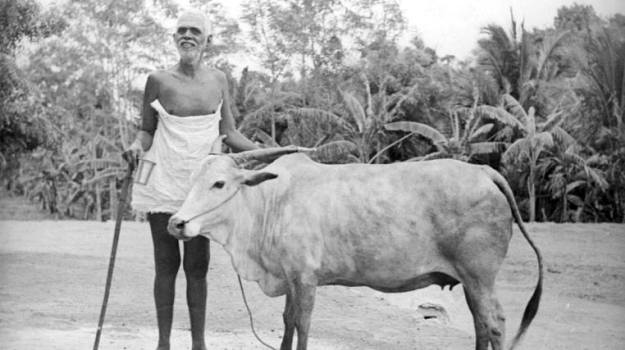
Similarly Maharishi Ramana had a cow called Lakshmi who was very devoted to him. Everyday Lakshmi, who had learnt the route to his ashram, would walk from town to see the Maharishi, lie down by his couch, graze in the ashram pastures and then reluctantly return back in the evening.
So intelligent was Lakshmi that without there being any bell announcing meal-times, she nevertheless, at the scheduled time would enter the ashram dining hall to be fed by the Maharishi himself.
What’s more, as Maharishi Ramana himself explained, Lakshmi was so spiritually advanced that at his mere touch she would immediately enter into the deepest meditation of Samadhi. (Read more fascinating accounts of Lakshmi & the Maharishi here and here.)
Nurturing in their hearts this same light of boundless love for all creation, were 2 more great yogis – Sri Aurobindo and Mother Mirra who sheltered many cats in their ashram. Once Sri Aurobindo was speaking to some disciples, when he shared the following lively anecdotes about the ability of animals to think, reason and solve problems:
Can Animals Think, Reason & Solve Problems?
Sri Aurobindo: People say animals can’t think or reason. It is not at all true. Their intelligence has evolved to act only within the narrow limits of life, according to their own needs. But they have latent faculties which have not been developed.
Cats have a language of their own. They utter different kinds of mews for different purposes. For instance, when the mother cat mews in a particular tone and rhythm after leaving her kittens behind a box, the little ones understand that they are not to move from that place until she comes back and repeats that mew. It is through the tone and the rhythm that cats express themselves.
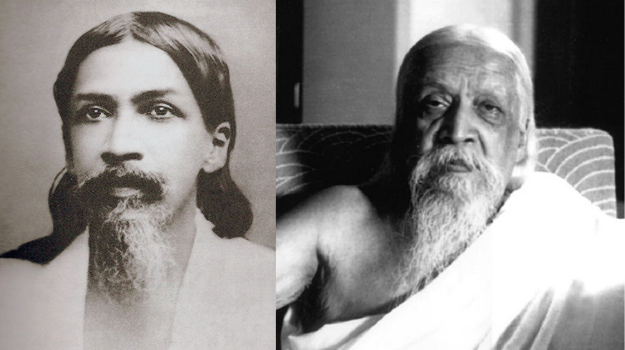
Even donkeys, which are supposed to be very stupid, are sometimes unusually clever. Once some horses and donkeys were confined together, with the gate shut, to see if they could get out. While the horses were helpless, a donkey got out by lifting the latch and opening the gate.
Why go so far? Even in our Ashram the Mother’s cat Chikoo was extraordinarily clever. One day she was confined in a room. It was discovered that she was trying to open the window in exactly the same way as the Mother used to do. Evidently Chikoo had watched the Mother carefully.
We had a dog, left by somebody in the first house we rented. One day she was locked out. Finding it impossible to push the door open, she just sat in front of it and began to think, “How to get in?” The way she sat and the attitude of her head and eyes showed clearly that she was thinking. Then suddenly she got up, as if saying to herself, “Ah, there is the bathroom door. Let me try it.”
And she went in that direction. The door was open and she got in. It is the Europeans who make a big difference between man and animal. The only difference is that animals can’t form concepts and can’t read or write or philosophise.
Nirodbaran: They can’t do Yoga, either.
Sri Aurobindo: I don’t know about that. Once, while the Mother and I were meditating, a cat happened to be present. We found that she was behaving oddly. She passed into a trance and was almost on the point of leaving her body and dying, when suddenly she recovered. Evidently she was trying to receive something.
Nirodbaran, a direct disciple of Sri Aurobindo, recounting a conversation that took place on 28 January 1939, in his book: Talks with Sri Aurobindo, Volume 1 (FREE Download).
Animals Can Think, But Do Animals Think Like Humans Do?
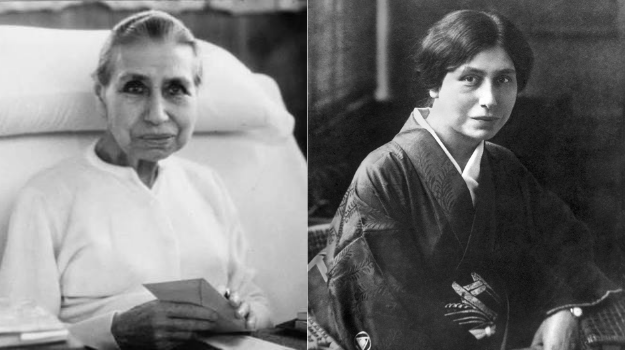
Now after reading the above anecdotes of Sri Aurobindo, we might wonder: yes animals can think, but do animals think exactly in the same manner as we human do? Do thoughts constantly run through their heads like they do ours?
These queries have been beautifully resolved by Mother Mirra, who was the spiritual counter-part of Sri Aurobindo. The Mother’s answers are based on her own immense yogic experiences and her ability to read the minds of even animals. Here’s what the Mother had to say:
“Animals have an altogether rudimentary mind. They are not tormented by incessant thoughts like human beings. For example, they feel a spontaneous gratitude for an act of kindness towards them, whilst men, ninety-eight times out of a hundred, begin to reason and ask themselves what interest one could have in being good. This is one of the great miseries of mental activity.
Animals are free from this and when you are kind to them they are grateful to you, spontaneously. And they have trust. So their love is made of that, and it turns into a very strong attachment, an irresistible need to be near you.”
An excerpt from the book: Questions & Answers by Mother, 1953 (FREE Download).
It was in recognition of this simplicity, beauty and purity of the animal heart that Swami Vivekananda, more than 100 years ago, advised Sister Nivedita to include animals as part of her school’s curriculum, so that children could have an opportunity to learn directly from them.
“Gather all sorts of animals about you. The cow makes a fine beginning. But you will also have dogs and cats and birds and others. Let the children have a time for going to feed and look after these.”
– Swami Vivekananda’s advice to Sister Nivedita on starting a girl’s school in India.




